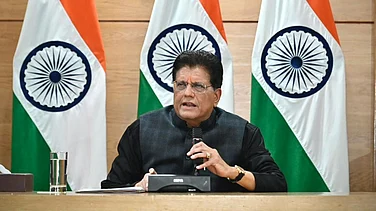Capital markets regulator SEBI on Friday proposed that alternative investment funds (AIFs) need to adopt a standardised methodology for valuation of investment portfolios managed by them.
It has been recommended that AIFs should be mandated to carry out valuation of their investment portfolio as per International Private Equity and Venture Capital Valuation (IPEV) Guidelines.
Presently, AIF Regulations focus on disclosures to investors and do not prescribe any guidelines on the methodology to be adopted.
As such, managers of AIFs have flexibility to adopt any valuation methodology by disclosing the same to investors in Private Placement Memorandums (PPMs) of schemes of AIFs managed by them.
Currently, the modalities relating to valuation of investment portfolio of the AIFs are not disclosed in the PPMs at the time of submission to SEBI and also not reported to the regulator subsequently.
In its consultation paper, SEBI has suggested criteria of independent valuers appointed by AIFs, reporting of valuation to performance benchmarking agencies and responsibilities of manager of AIF with regard to valuation of their investment portfolio and related disclosures.
The Securities and Exchange Board of India (SEBI) has sought comments from the public till January 23 on the proposals.
As per the draft papers, out of 269 schemes of Category I and Category II AIFs, which invest primarily in unlisted securities, only 71 schemes or 26.4 percent follow IPEV guidelines for valuation methodology, while others follow market, income, asset and cost based approaches.
With regard to criteria for independent valuer, SEBI suggested that AIF should appoint an independent valuer who is registered with the Insolvency and Bankruptcy Board of India (IBBI) and has at least three years of experience in valuation of unlisted securities.
Among others, such independent valuer is required to have a membership of a professional institute such as Institute of Chartered Accountants of India (ICAI) and Institute of Company Secretaries of India (ICSI) and Institute of Cost Accountants of India.
Further, the managers should be required to ensure that one of the terms in subscription agreement with the investee company stipulates a specific timeframe for providing its audited accounts to the AIF.
This would enable manager of AIF to report valuation based on audited data as on March 31 to performance benchmarking agencies within the specified timeline of 6 months.
Also, managers of AIFs should ensure that valuation based on audited data of investee company is reported to performance benchmarking agencies only after the audit of books of accounts of the AIF.
With regard to responsibilities of manager for valuation, SEBI has proposed that managers of AIFs should be required to ensure that the independent valuer computes and carries out valuation of investments made by the scheme(s) of AIFs in accordance with the stipulated guidelines.
The manager should be responsible for true and fair valuation of the investments made by the scheme of the AIF.
In cases where the established policies and procedures of valuation do not result in fair and appropriate valuation, the manager may be required to deviate from such policies and procedures in order to value the assets or securities at a fair value and document the rationale for such deviations.
Any such deviation from the disclosed valuation policy and procedures should be allowed along with disclosure of the documented rationale to the Board of Directors or designated partners of the AIF and investors of the AIF.
"At each asset level, in case there is a deviation of more than 20 percent between two consecutive valuations or a deviation of more than 33 percent in a financial year, the manager shall be required to inform the investors the reasons for the same, both generic and specific," SEBI said.

SEBI Mulls Standardised Approach To Valuation Of Investment Portfolio Of AIFs
SEBI Mulls Standardised Approach To Valuation Of Investment Portfolio Of AIFs
Published At:
- Previous Story
 India–US Trade Deal to Be Formalised by Mid-March; Joint Statement Within Days: Piyush Goyal
India–US Trade Deal to Be Formalised by Mid-March; Joint Statement Within Days: Piyush Goyal - Next Story
MOST POPULAR
WATCH
MORE FROM THE AUTHOR
×


















.jpg?w=200&auto=format%2Ccompress&fit=max)




